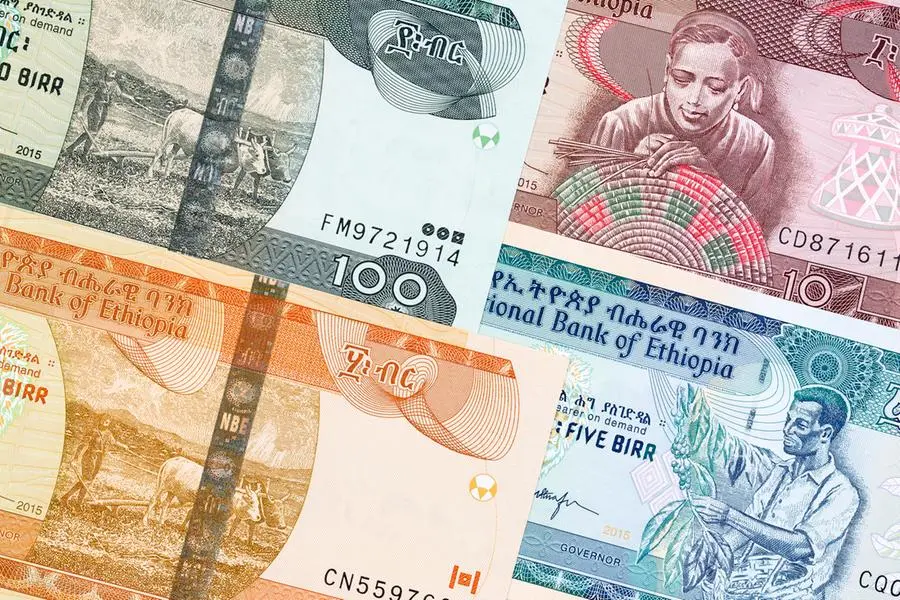PHOTO
Ethiopian government is eyeing $700 million in a concessional loan from the World Bank to finance the financial sector reforms, including the recapitalisation of the state-owned Commercial Bank of Ethiopia, which is facing financial distress due to increased bad loans.
The National Bank of Ethiopia (NBE) disclosed in its latest financial stability report dated November 2024 that the World Bank-backed Financial Sector Strengthening Project (FSSP), which it is spearheading together with the Ministry of Finance, is designed to ensure the successful restructuring, recapitalisation and reform of the bank.
“To support the implementation of this reform programme, the World Bank is expected to approve concessional financing worth $700 million to further strengthen the banking sector’s supervision framework and its regulations."
The funds will also support the recapitalization of CBE and the various reform activities that each of the implementing agencies — NBE, CBE and Development Bank of Ethiopia (DBE) will undertake,” NBE says.“The restructuring aims to reduce CBE’s exposure to non-performing state-owned enterprise assets by transferring the stock of loans owed by the Liability and Asset Management Company (LAMC) and Ethiopian Electric Power (EEP) to the government. In addition, a subsequent recapitalization exercise aims to increase CBE’s capital in line with its systemic importance in the sector.”
Ethiopia’s House of People’s Representatives approved a government-proposed bill to issue bonds worth 900 billion birr ($7.12 billion) to the CBE to lend to these state enterprises and inject additional capital into CBE.
The debt by the LAMC and EEP are being replaced with government bonds, resulting in the removal of these items from the CBE balance sheet and its restructuring accordingly.
NBE says the transfer of the debts from the LAMC and EEP to the government does not change the public sector’s exposure to debt, as this is not a new obligation. Instead, it makes the debt the government’s responsibility rather than the two public enterprises’.
CBE, the only large bank in the country accounts for about 50 percent of Ethiopia’s banking industry in terms of market share of its assets and deposit base, has a wide geographical coverage and presence. It is considered systemically important and is the longest serving bank in the country.
The central banks says that while CBE has played a central role in Ethiopia’s economic growth and development, its overexposure to projects run by public sector organisations has put it in distress.
As part of the reforms, CBE is expected to redefine its governance and operating model in a way that ensures its commercial mandate, ensure compliance with NBE regulations --including on corporate governance and risk management--, implement recommendations of an asset quality review, and pursue various cost optimisation measures.
“The implementation of the CBE reforms is expected to ensure the bank’s improved financial soundness and sustainability and further cement the contribution it makes towards supporting private sector-led economic growth and development going forward,” the Central banks said.
The CBE has a high cushion of regulatory capacity, as its capital adequacy ratio (CAR) is significantly above NBE’s eight percent minimum capital requirement, and its liquidity position is also high, above the 15 percent minimum requirement.
But the regulator says that while CBE’s CAR remains above the regulatory minimum at all levels of risk stress, its liquidity position could fall below the regulatory minimum in the event of a sudden withdrawal by its 10 most important depositors.
Ethiopia is fighting to pull out from macroeconomic headwinds associated with severe inflation, mounting debt and foreign currency shortage, which is impacting foreign investments.
Prime Minister Abiy Ahmed is working to open up the Ethiopian economy to foreign investments after decades of a state-controlled regime.
The NBE started implementing a flexible exchange rate regime policy backed by the International Monetary Fund in July this year, as part of new measures to stabilise the economy.
Under the new regime, commercial banks can set prices for foreign exchange while non-bank entities can operate forex bureaus after decades of a fixed exchange rate regime where government set prices for foreign currencies.
Abiy’s administration had been facing mounting pressure from the World Bank and IMF to float the country’s currency and implement critical reforms in the foreign exchange market in exchange for funding.
© Copyright 2022 Nation Media Group. All Rights Reserved. Provided by SyndiGate Media Inc. (Syndigate.info).




















